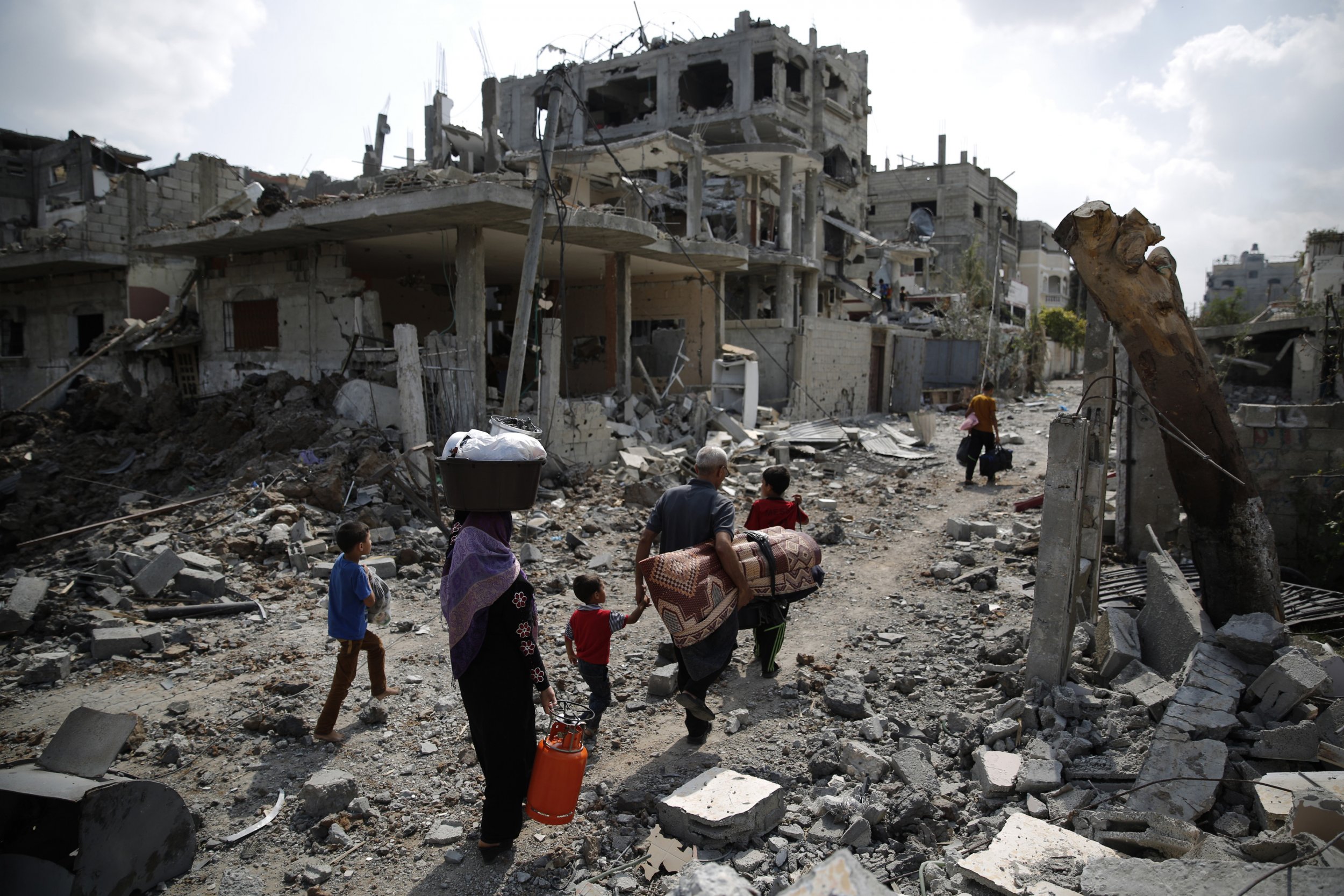
A report commissioned by the Israeli branch of Physicians for Human Rights (PHR) has accused the Israeli Defence Forces (IDF) of carrying out a series of human rights abuses during the Gaza conflict in the summer 2014. The group have now called for the Israeli government to open an inquiry into the alleged violations they say occurred during the 50-day conflict.
The war resulted in the deaths of almost 2,200 Palestinians, including 500 children, and the displacement of 100,000. There were 73 Israeli casualties, 64 of whom were soldiers.
The team, whose testimonies the report was based on, was made up of eight independent international medical experts who were unconnected with Palestine or Israel. They visited the Gaza Strip three times between August and November last year, interviewing 68 Palestinian patients who had been hospitalised during the attacks, and also held meetings with a variety of local NGOs.
Key findings documented in the report include that "heavy explosives were used in residential neighbourhoods, resulting in multiple civilian casualties" and that the IDF also conducted 'double tap' strikes, meaning that first responders to an area already hit, lost their own lives in the second round of bombing. There are also claims that on 21st July 2014 the Israeli army carried out an "apparently deliberate attack" on Shuhada' Al Aqsa Hospital in Deir Al Balah, a city in the centre of the Gaza Strip.
Some of the most shocking findings were discovered when the team carried out an in-depth study of Khuza - a small farming town with a population of around 13,000. The report concludes: "The conduct of specific troops in the area is indicative of additional serious violations of international human rights and humanitarian law."
The site was chosen due to the fact that both rescue organisations and journalists had reported the difficulties they had faced when trying to access the site and "the need to collect first-hand evidence regarding various allegations made".
The report describes how on 23rd July hundreds of residents had attempted to evacuate the town holding white flags but were told to return by Israeli soldiers, while some also said that they were shot at. On the same day, a clinic came under attack, despite the fact it was clearly marked as a healthcare centre.
A day after this, when a group again tried to leave, there are three eyewitness accounts which describe how a six-year-old boy who reportedly had serious abdominal injuries was denied "medical evacuation" despite the fact that Israeli troops are thought to have seen him and how badly he was wounded. The boy later died of his injuries.
Other accounts from Khuza include members of the IDF using Palestinians as human shields and one man described how soldiers had shot dead his 65-year-old father in front of him at point blank range.
In the conclusion of the report the IDF are criticised for failing to enable Palestinian residents to escape the shelling. "The initiators of the attacks, despite giving some prior warnings of these attacks, failed to take the requisite precautions that would effectively enable the safe
evacuation of the civilian population, including provision of safe spaces and routes." It also describes how the team found numerous example where medical teams were attacked, and that there was mistreatment and abuse of civilians by individual soldiers, and that some were even shot at short range.
The findings were sent to Israeli prime minister Benjamin Netanyahu and the IDF have released a statement lambasting the report as "one-sided, thin and imprecise", saying it was based on "information from sources biased against Israel from the start. The report's sweeping conclusions and the problematic methodology it uses cast a heavy shadow over its contents and credibility," it concluded. The IDF did not respond to requests for further comment.
The report is to be included in a United Nations Human Rights Council probe into alleged war crimes that occurred in Gaza, which will be published in March.
A team of UN war crimes investigators seeking to look into allegations of war crimes by both the IDF and Hamas were denied entry to Israel and Gaza earlier this month and have had to take evidence in the Jordanian capital Amman.
The Aftermath, an ebook telling the story of one correspondent's return to Gaza by Sarah Helm is available now from Newsweek Insights.
Uncommon Knowledge
Newsweek is committed to challenging conventional wisdom and finding connections in the search for common ground.
Newsweek is committed to challenging conventional wisdom and finding connections in the search for common ground.
About the writer
Lucy is the deputy news editor for Newsweek Europe. Twitter: @DraperLucy
To read how Newsweek uses AI as a newsroom tool, Click here.








